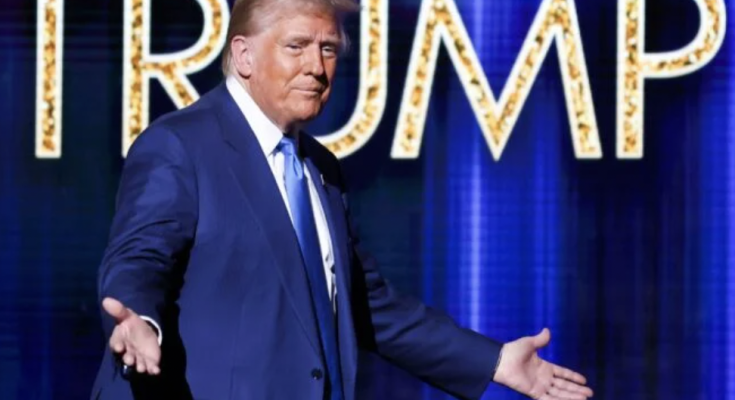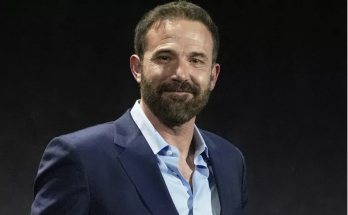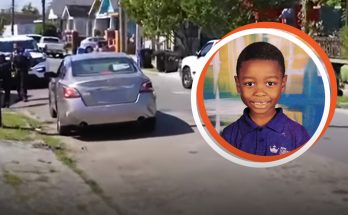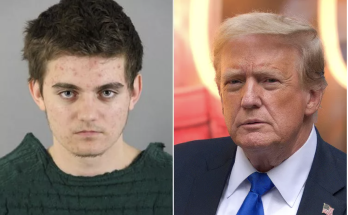President-elect Donald Trump in a television interview that aired Sunday previewed a sweeping agenda for his first days in office, outlining how his administration will prioritize deporting migrants with criminal records, vowing to pursue pardons for January 6 defendants on his first day, and raising the possibility that former Rep. Liz Cheney and other political opponents could face jail time.
At the same time, Trump said he’s open to working with Democrats to preserve the legal status of “Dreamers” — an often-used term for immigrants who were brought to the US as children — even as he stood by campaign pledges of mass deportations and ending birthright citizenship.
“We have to do something about the Dreamers, because these are people that have been brought here at a very young age, and many of these are middle-aged people now. They don’t even speak the language of their country. And yes, we’re going to do something about that,” Trump said in a “Meet the Press” interview with NBC’s Kristen Welker that taped Friday, his first broadcast sit-down since he was elected.
“I will work with the Democrats on a plan, and if we can come up with a plan — but the Democrats have made it very, very difficult to do anything. Republicans are very open to the Dreamers,” he added.
Trump had previously expressed some support for protecting Dreamers during his first term, although his administration tried to end Deferred Action for Childhood Arrivals, the Obama-era program that protects them from deportation. That attempt was blocked by the Supreme Court in 2020.
Trump said his administration’s mass deportation efforts will target people with criminal histories, but indicated it could go beyond deporting criminals — without specifying who the “other people outside of criminals” would be. When asked whether he plans to deport every person who has entered the country illegally, he said, “I think you have to do it.”
“It’s a very tough thing to do,” he said, adding, “you know, you have rules, regulations, laws. They came in illegally.”
Asked about families with mixed immigration status — where parents are in the country illegally but their children are not — Trump said, “I don’t want to be breaking up families, so the only way you don’t break up the family is you keep them together, and you have to send them all back.”
Trump also doubled down on his campaign promise to end birthright citizenship, which is protected by the 14th Amendment, and suggested he may attempt to overturn the right through executive action.
“We’re gonna have to get it changed, or maybe I would go back to the people, but we have to end it. We’re the only country that has it,” he said, echoing a false statement he’s made in the past. “If we can, through executive action. I was going to do it through executive action, but then we had to fix Covid first, to be honest with you.”
As CNN has reported, about three dozen countries provide automatic citizenship to people born on their soil.
Investigations and pardons
Trump said he would not seek “retribution” against President Joe Biden and against his political enemies, but he repeatedly left room for his appointees to decide whether to go after specific people. He suggested members of Congress who led the investigations into his conduct during the January 6, 2021, attack on the US Capitol should be put in jail and that he’ll look on his first day at issuing pardons to supporters involved in the riot.
“These people have been there, how long is it? Three or four years? You know, by the way, they’ve been in there for years, and they’re in a filthy, disgusting place that shouldn’t even be allowed to be open,” he said. Nearly 1,200 people either have pleaded guilty or were found guilty at trial for crimes connected to the January 6 attack, according to the Justice Department. More than 645 defendants were ordered to serve some jail time.
Trump said he would not direct his Justice Department to investigate members of Congress and Biden administration officials who led the investigations into his role in January 6, but continued to suggest his DOJ would be justified in deciding to launch investigations without his input.
When asked about the possibility of investigating special counsel Jack Smith, who brought the two since-dropped federal cases against him, Trump said he wants his pick for attorney general, Pam Bondi, to “do what she wants to do.”
“She’s very experienced. I want her to do what she wants to do. I’m not going to instruct her to do it,” he said.
Trump was more direct when speaking about the members of Congress who led the January 6 committee, telling Welker that the co-chairs of the committee — Republican Cheney, who has since left Congress, and Democrat Bennie Thompson — should “go to jail.”
“Cheney was behind it. So is Bennie Thompson and everybody on that committee,” he said. “For what they did, honestly, they should go to jail.”
Trump also suggested that committee members might do well to receive preemptive pardons from Biden to protect themselves from criminal prosecution. CNN reported last week that Biden White House aides, administration officials and prominent defense attorneys in Washington were discussing potential preemptive pardons or legal aid for people who might be targeted by Trump.
“Biden can give them a pardon if he wants to,” Trump said. “And maybe he should.”
In a statement later Sunday, Cheney said, “Donald Trump’s suggestion that members of Congress who later investigated his illegal and unconstitutional actions should be jailed is a continuation of his assault on the rule of law and the foundations of our republic.”
Republican former Rep. Adam Kinzinger, who served on the committee, told CNN’s Manu Raju on Sunday he’s “not worried” about the Trump administration investigating him or his fellow committee members.
The Constitution’s Speech or Debate Clause protects lawmakers from certain law enforcement actions targeted at their legislative duties.
CNN has reached out to Thompson for comment.
Pressed whether he’d direct Bondi or Kash Patel, his pick to lead the FBI, to send them to jail, Trump said, “No, not at all,” before adding, “I think they’ll have to look at that.”
Asked whether he plans to follow up on his frequent campaign promise to investigate Biden — whom he repeatedly labeled as “corrupt” and a “criminal” on the campaign trail — Trump said he doesn’t want to “go back into the past.”
“I’m really looking to make our country successful. I’m not looking to go back into the past,” he said, adding, “Retribution will be through success.”
When asked about previously saying he would direct his Justice Department to appoint a special prosecutor to investigate Biden, Trump said he would not do that but left the door open for top DOJ officials to make their own determinations.
“No, I’m not doing that unless I find something that I think is reasonable,” he said. “But that’s not going to be my decision. That’s going to be Pam Bondi’s decision, and, to a different extent, Kash Patel, assuming they’re both there, and I think they’re both going to get approved.” Trump has tapped Patel to lead the FBI, despite the current director, Trump appointee Christopher Wray, still having several years left in his 10-year term.
Throughout the interview, Trump at times struck a more temperate tone toward his political opponents and appeared to prioritize uniting the country over exacting vengeance. He said he plans to make unity a central theme of his inauguration address and expressed confidence that his administration will achieve a level of success that will bring the country together.
But Trump invoked similar calls for unity at various points throughout his campaign — including in the wake of the first assassination attempt against him — before often reverting to bitter, divisive rhetoric and personal attacks. During the NBC interview, Trump again refused to concede that he lost the 2020 presidential election.
‘Can’t guarantee’ tariffs won’t raise prices
In the interview, Trump further previewed his plan to levy additional tariffs on three of the nation’s largest trading partners — Mexico, Canada and China. He again argued the US is “subsidizing” those countries and said tariff hikes will create a more equitable economy for the US and its allies. But Trump said he “can’t guarantee” tariffs won’t lead to increased prices on goods for Americans, as economists have suggested.
“I can’t guarantee anything. I can’t guarantee tomorrow,” he said, before claiming that during his first presidency “we had no inflation” and that the tariffs he imposed “cost Americans nothing.” Both of these claims are false, as CNN has fact-checked.
Trump also said he does not intend to replace Jerome Powell, the chair of the Federal Reserve, when he takes office.
Responding to concerns that his initiative to reduce government spending, spearheaded by tech entrepreneurs Elon Musk and Vivek Ramaswamy, could lead to cuts to entitlement programs, Trump promised not to make cuts to Social Security or raise the retirement age to begin receiving benefits. But he did say his administration would look to make the program “more efficient.”
Ramaswamy has previously said his and Musk’s initiative, the Department of Government Efficiency, would seek to eliminate “waste, fraud and abuse” in entitlement programs.
After tapping Robert F. Kennedy Jr., a leading vaccine skeptic who has promoted anti-vaccine conspiracy theories, as his pick to lead the Department of Health and Human Services, Trump said he’s open to Kennedy looking into eliminating childhood vaccines “if they’re dangerous for the children.” He then falsely suggested that vaccines have contributed to a rise in autism diagnoses, a claim that has been repeatedly debunked.
Trump continued to tout his isolationist foreign policy agenda, teasing possible movements away from US allies in Europe. He refused to commit to keeping the US in NATO for the duration of his term, saying if NATO allies did not increase their contributions to funding the organization’s defense expenditures, he would “absolutely” consider withdrawing. And when asked whether Ukraine should prepare to receive less US aid when he takes office, Trump said “possibly, probably, sure.”
Trump, who will be the oldest person sworn in as president, again committed to releasing his medical records, saying he has “no problem with it” and “I think anybody should.” He has previously released letters from his personal physicians outlining his health but has not released detailed accounts of his medical history.
CNN’s Rashard Rose and Jamie Gangel contributed reporting.
This story and headline have been updated with additional information.



